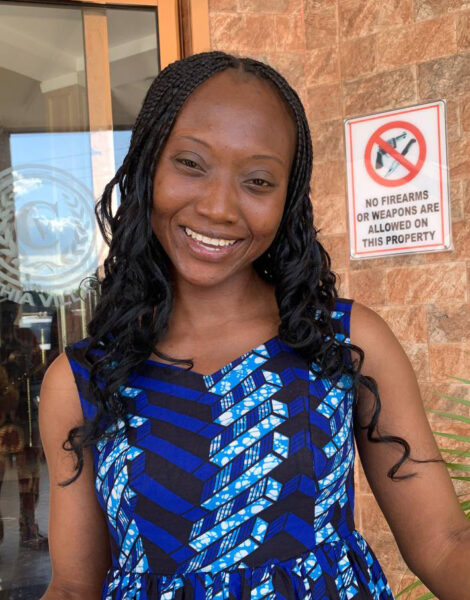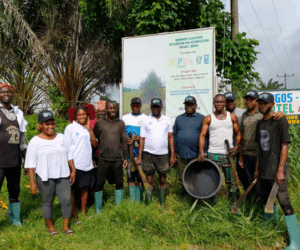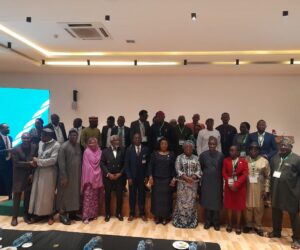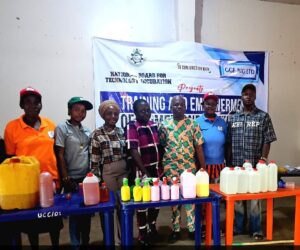1
LAGOS – With the recent increase in maternal mortality among adolescents in the country, Nigerian youths have been advised to make right choices on family planning so as to be in a better position to lead the campaign against maternal mortality rate among their peers.
This advise was given by the Partnership Manager of FP2030 Made Possible, Northwestern Central Africa, Margret Bolaji recently while speaking in an interview with journalists on the activities of her organisation
According to her, available statistics indicate that in Nigeria, young people whose ages ranges from 10-24 years make up about 60% of the population and if they’re not well informed about family planning, it could lead to more avoidable deaths amongst them.
“There’s no denying the fact that over 60% of persons in this country are between the ages of 10 to 24. With that, it means that if we do not educate this population, knowing fully well that they’re the next set of people who would populate the entire world, then we’ re making a big mistake”, she stated
Bolaji whose organization is carrying out a community-led family planning campaign supported by the Gates Foundation, said that it’s
important for young people to have adequate and accurate information, so that they can make informed choices noting that it’s important for government at all levels to invest in family planning of young people.
” There’s a common saying that when you’re able to invest in the health sector, particularly family planning of young people, there are three dividends to be derived; One is the adolescent that they are today, the adults they will become, and even the next generation they may want to raise.
She explained that her organization is raising new voices through the youths from fashion, media, arts and various spheres of life, charging the youths not to be complacence about family planning campaign.
Bolaji reminded the youths that family planning is not just about products, it’s about helping them get back to school, help raise a healthy family and achieve their full potentials.
” My advise to the young people, is that they should raise their voices, get adequate and accurate information, and also make informed choices about their health.
Family Planning: A Catalyst For National Development
The Youth Partnership Manager at FP2030 Northwestern Central Africa, stressed on the transformative of goals of the “Made Possible” campaign, positioning family planning as a cornerstone of national progress. “Made Possible is not just about health,” she emphasised. “It is a catalyst for education, economic growth, and national development.”
Bolaji was worried that family planning is frequently reduced to a narrow conversation about commodities. “Yes, it’s about commodities,” she acknowledged, “but it has enabled girls to return to school, helped parents raise healthier children, and allowed women to pursue careers.”
The campaign aims to amplify diverse voices from sectors such as fashion, media, finance, and sports, illustrating that family planning permeates every facet of society. “It’s not just a woman’s issue or a health issue—it is everybody’s issue,” Bolaji asserted.
Need For Stronger Accountability Mechanisms
Underscoring the need for transparency and responsible governance, Bolaji urged for stronger accountability mechanisms. “Civil society organisations must hold governments accountable for releasing committed funds,” she said. “Ministries of Education, Health, Youth and Sports, and Budget and Planning must collaborate to avoid duplication and ensure effective resource use.”
She called on the Nigerian government to allocate at least one percent of its health budget to family planning and, crucially, to ensure that these funds are actually disbursed. “This is the time to put our money where our mouth is,” she declared.
Bogotá: A Global Gathering For Change
The next major milestone for the campaign is the ongoing International Conference on Family Planning ICFP 2025,, in Bogotá, Colombia. This global event will bring together stakeholders from across the world to share commitments and chart a strategic roadmap to 2030.
Bolaji described the conference as a pivotal moment in the movement. “Every new commitment, every new voice, every dollar raised brings us closer to making family planning a social norm that saves lives, strengthens economies, and empowers women,” she said.
She expressed hope that the campaign’s message would resonate far beyond traditional health circles. “We want to walk into a fashion show and hear them talk about family planning. We want to see it on the sports field, in financial institutions, in engineering conferences. That’s when we’ll know the campaign is working.”
Bolaji concluded with a powerful reminder of the campaign’s broader mission. “The FP2030 campaign is not just about raising money, it’s about changing perceptions and sparking action. Family planning remains one of the smartest investments any society can make. And with the Made Possible campaign, FP2030 is determined to show the world just how much is possible when family planning is prioritised.”








